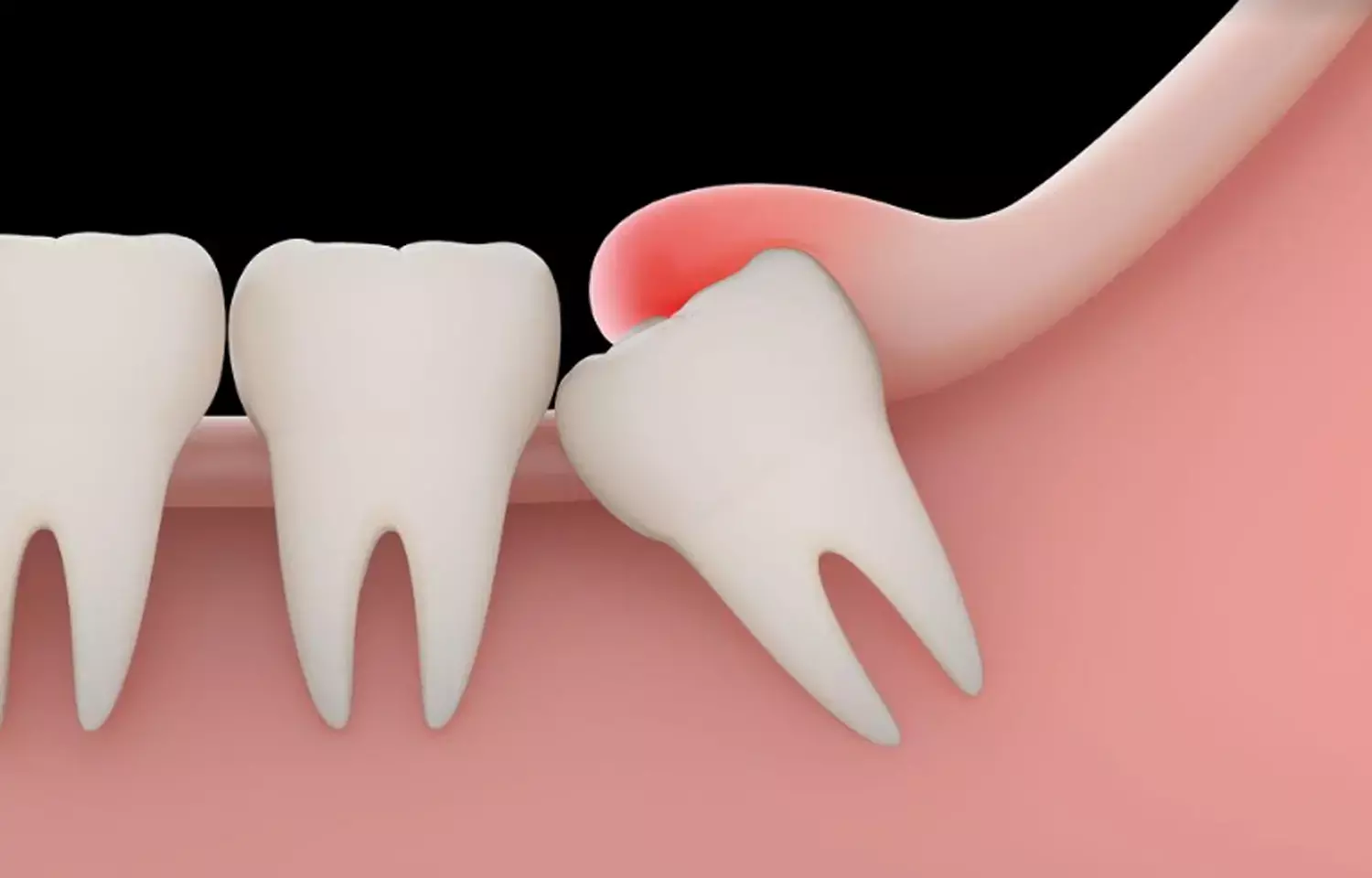- Home
- Medical news & Guidelines
- Anesthesiology
- Cardiology and CTVS
- Critical Care
- Dentistry
- Dermatology
- Diabetes and Endocrinology
- ENT
- Gastroenterology
- Medicine
- Nephrology
- Neurology
- Obstretics-Gynaecology
- Oncology
- Ophthalmology
- Orthopaedics
- Pediatrics-Neonatology
- Psychiatry
- Pulmonology
- Radiology
- Surgery
- Urology
- Laboratory Medicine
- Diet
- Nursing
- Paramedical
- Physiotherapy
- Health news
- Fact Check
- Bone Health Fact Check
- Brain Health Fact Check
- Cancer Related Fact Check
- Child Care Fact Check
- Dental and oral health fact check
- Diabetes and metabolic health fact check
- Diet and Nutrition Fact Check
- Eye and ENT Care Fact Check
- Fitness fact check
- Gut health fact check
- Heart health fact check
- Kidney health fact check
- Medical education fact check
- Men's health fact check
- Respiratory fact check
- Skin and hair care fact check
- Vaccine and Immunization fact check
- Women's health fact check
- AYUSH
- State News
- Andaman and Nicobar Islands
- Andhra Pradesh
- Arunachal Pradesh
- Assam
- Bihar
- Chandigarh
- Chattisgarh
- Dadra and Nagar Haveli
- Daman and Diu
- Delhi
- Goa
- Gujarat
- Haryana
- Himachal Pradesh
- Jammu & Kashmir
- Jharkhand
- Karnataka
- Kerala
- Ladakh
- Lakshadweep
- Madhya Pradesh
- Maharashtra
- Manipur
- Meghalaya
- Mizoram
- Nagaland
- Odisha
- Puducherry
- Punjab
- Rajasthan
- Sikkim
- Tamil Nadu
- Telangana
- Tripura
- Uttar Pradesh
- Uttrakhand
- West Bengal
- Medical Education
- Industry
Piezosurgery and dexamethasone injection reduce pain after impacted third molar surgery: Study

Surgical extraction of the impacted mandibular third molar is commonly associated with postoperative pain, swelling, and trismus. Usually, rotatory instruments like burs have been used for osteotomy, while Piezosurgery is an innovative technique introduced to overcome the weaknesses related to the conventional technique.
In addition, Dexamethasone administration before the extraction of impacted third molars is an efficient way to reduce postoperative pain due to robust anti-inflammatory activity. The association of Piezosurgery osteotomy and Dexamethasone intramuscular injection could be an effective combination to reduce postoperative pain and trismus after impacted third molar surgery, finds a study recently published in the BMC Oral Health.
Wissam Nehme and team from the Neuroscience Research Center, Faculty of Medical Sciences, Lebanese University, Beirut, Lebanon evaluated the effect of piezo-surgery and dexamethasone injection on postoperative sequelae after the surgical extraction of impacted mandibular third molars, and ultimately to compare their effect on reducing postoperative pain.
A randomized controlled clinical trial was conducted with a sample of 80 patients. Participants were divided into four groups:
a. Group 1 (Conventional rotatory),
b. Group 2 (Conventional rotatory with 8 mg dose of dexamethasone 30 min before surgery),
c. Group 3 (Piezo-surgery), and
d. Group 4 (Piezo-surgery with 8 mg dose of dexamethasone 30 min before surgery).
The outcome variables were surgical working time calculated in minutes, maximal mouth opening measured in millimeters using Vernier Caliper at baseline and day 3 and postoperative pain assessed using a Visual Analog Scale (VAS) on days 1, 3, and 7.
It was found out that the surgical working time was longer in piezo-surgery groups compared with the conventional rotatory instruments groups. The lowest reduction in mouth opening between baseline and 3rd-day post-op was found in the Piezo-surgery with Dexamethasone group followed by the Piezosurgery without Dexamethasone group and the highest average was reported by the Conventional rotatory without Dexamethasone.
In the four groups, the mean pain score was highest on the 1st day and gradually decreased over the following days. Comparison of the 1st and 3rd postoperative pain between groups revealed a lowest mean pain score in the Piezo-surgery with Dexamethasone group, followed by Conventional rotatory with Dexamethasone group and a highest mean score in the Conventional rotatory without Dexamethasone group.
Hence, the authors drew the following conclusions-
a. Regardless of increasing the surgical working time than conventional rotatory technique, Piezosurgery significantly reduces the related postoperative sequelae of third molar surgery and hence improves the quality of life of the patient.
b. Piezosurgery is also recommended when the third molar has particularly dangerous or unusual positions.
c. As well, intramuscular Dexamethasone injection half an hour before surgery reduces postoperative pain and trismus.
For further reference, log in to:
Nehme, W., Fares, Y. & Abou-Abbas, L. Piezo-surgery technique and intramuscular dexamethasone injection to reduce postoperative pain after impacted mandibular third molar surgery: a randomized clinical trial. BMC Oral Health 21, 393 (2021). https://doi.org/10.1186/s12903-021-01759-x
Dr. Nandita Mohan is a practicing pediatric dentist with more than 5 years of clinical work experience. Along with this, she is equally interested in keeping herself up to date about the latest developments in the field of medicine and dentistry which is the driving force for her to be in association with Medical Dialogues. She also has her name attached with many publications; both national and international. She has pursued her BDS from Rajiv Gandhi University of Health Sciences, Bangalore and later went to enter her dream specialty (MDS) in the Department of Pedodontics and Preventive Dentistry from Pt. B.D. Sharma University of Health Sciences. Through all the years of experience, her core interest in learning something new has never stopped. She can be contacted at editorial@medicaldialogues.in. Contact no. 011-43720751
Dr Kamal Kant Kohli-MBBS, DTCD- a chest specialist with more than 30 years of practice and a flair for writing clinical articles, Dr Kamal Kant Kohli joined Medical Dialogues as a Chief Editor of Medical News. Besides writing articles, as an editor, he proofreads and verifies all the medical content published on Medical Dialogues including those coming from journals, studies,medical conferences,guidelines etc. Email: drkohli@medicaldialogues.in. Contact no. 011-43720751


